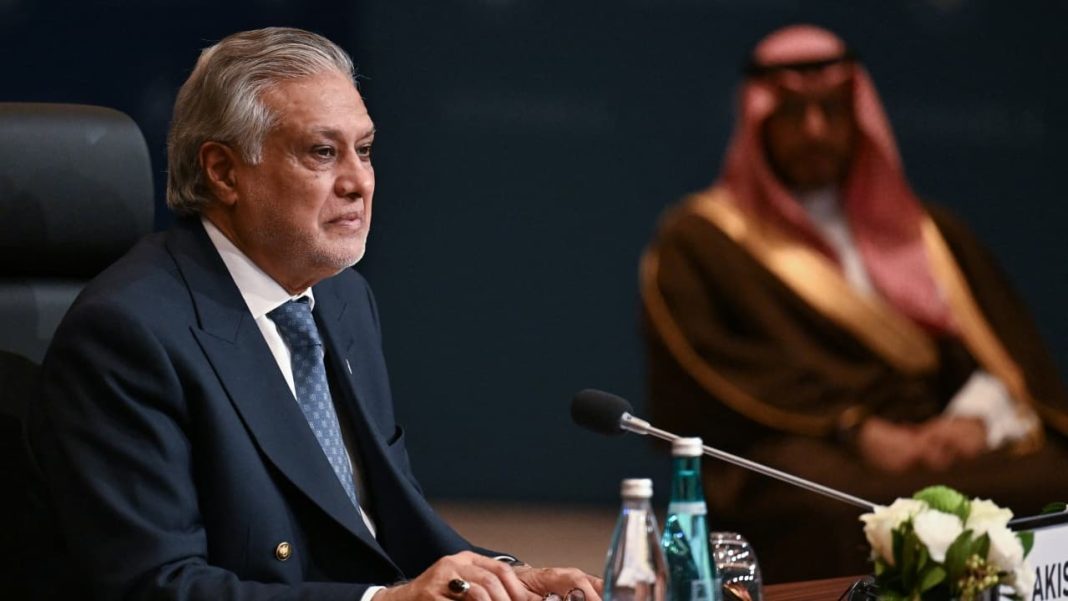A stark admission from Pakistan’s Deputy Prime Minister and Foreign Minister, Ishaq Dar, has sent ripples across the political landscape, bringing to the forefront the contentious relationship between Pakistan’s intelligence agencies and militant groups. Dar recently declared, “That cup of tea came at a great cost,” directly linking the September 2021 visit of then-ISI chief Lt Gen Faiz Hameed to Kabul with the subsequent surge in bloodshed and terrorism within Pakistan. This statement, delivered from a high-ranking official, not only acknowledges a catastrophic miscalculation but also fuels a long-standing debate about Pakistan’s complex and often contradictory approach to militancy.
The ‘Cup of Tea’ and a Costly Betrayal
Ishaq Dar’s pointed remark refers to the widely circulated image of Lt Gen Faiz Hameed, then head of Pakistan’s powerful Inter-Services Intelligence (ISI), sipping tea at a hotel in Kabul in September 2021. This visit occurred shortly after the Taliban’s rapid takeover of Afghanistan and was perceived globally as an endorsement of the new regime, or at least a significant engagement. At the time, Pakistan’s establishment presented it as an effort to ensure border security and stability in Afghanistan. However, Dar’s recent comments suggest a far more sinister and detrimental purpose, implying that this engagement inadvertently, or perhaps directly, facilitated the resurgence of militant groups, particularly the Tehrik-i-Taliban Pakistan (TTP), within Pakistan’s borders.
The core of Dar’s accusation lies in the assertion that during this period, Pakistan’s intelligence apparatus either overlooked or actively engaged with elements that eventually turned against the state. The ISI chief’s visit was seen by many as an attempt to broker a deal or establish lines of communication with various factions, including the Afghan Taliban and potentially their affiliates like the TTP. For an Indian audience, this echoes historical concerns about Pakistan’s strategic ambiguity towards militant groups, often viewing them as proxies for regional influence, only to face severe blowback later. Dar’s statement is a rare public acknowledgment from within Pakistan’s top echelons that such policies have indeed had dire consequences.
Pakistan’s Escalating Bloodshed and the TTP Resurgence
The period following the Taliban’s return to power in Afghanistan has witnessed a dramatic deterioration of Pakistan’s internal security situation. The Tehrik-i-Taliban Pakistan (TTP), a formidable umbrella organization of various Islamist armed militant groups, has leveraged the chaotic environment in Afghanistan to regroup, rearm, and launch a renewed campaign of terror within Pakistan. With a safe haven across the porous Durand Line and access to weaponry left behind by withdrawing Western forces, the TTP has intensified its attacks on Pakistani security forces, police, and civilian targets, particularly in the Khyber Pakhtunkhwa and Balochistan provinces.
The statistics paint a grim picture: a significant increase in suicide bombings, targeted killings, and ambushes across the country. Towns and cities that had enjoyed relative peace for years are once again grappling with the specter of extremism. Dar’s statement implicitly points to a critical moment in time – the 2021 Kabul visit – as a turning point that inadvertently empowered these militant groups. Pakistan’s military has since launched counter-terrorism operations, but the persistence and scale of TTP attacks underscore the deep-seated challenges and the limitations of military solutions without addressing the root causes and the complex interplay of regional militant networks. This internal strife in Pakistan, exacerbated by its own past policies, is a critical geopolitical development, particularly for its neighbours.
Implications for Regional Security and India’s Perspective
Ishaq Dar’s candid admission holds significant implications for regional security and offers validation to India’s long-held concerns regarding Pakistan’s double-dealing with militant groups. For decades, India has consistently highlighted Pakistan’s ambiguous stance towards various extremist outfits, often accusing it of distinguishing between “good terrorists” and “bad terrorists.” Dar’s assertion that the “cup of tea” came at a “great cost” seems to confirm the perils of such a strategy, demonstrating how patronage or even perceived leniency towards one group can inevitably lead to a boomerang effect, engulfing the patron state in violence.
From an Indian perspective, the instability within Pakistan, fueled by resurgent militant groups like the TTP, is a matter of serious concern. A destabilized Pakistan, struggling with internal security, carries the risk of regional spillover, increased radicalization, and further entanglement in a complex web of extremism. Dar’s statement not only exposes the deep fissures within Pakistan’s own establishment regarding its past and present policies but also reinforces the narrative that state-sponsored or state-enabled militancy is ultimately a self-destructive path. It underscores the urgent need for a cohesive, consistent, and unequivocal approach against all forms of terrorism, a message India has championed globally.
Ishaq Dar’s statement serves as a potent reminder of the profound consequences of strategic miscalculations in dealing with militant groups. It lays bare the internal contradictions and costs associated with Pakistan’s historical approach to regional security. The “cup of tea” in Kabul, as Dar suggests, was indeed a moment of profound significance, the repercussions of which continue to be paid in Pakistani blood and instability. This internal reckoning within Pakistan’s political elite, albeit delayed, highlights the enduring challenge of extremism and the critical need for a clear, unified stance against all purveyors of violence for lasting peace and stability in the region.




